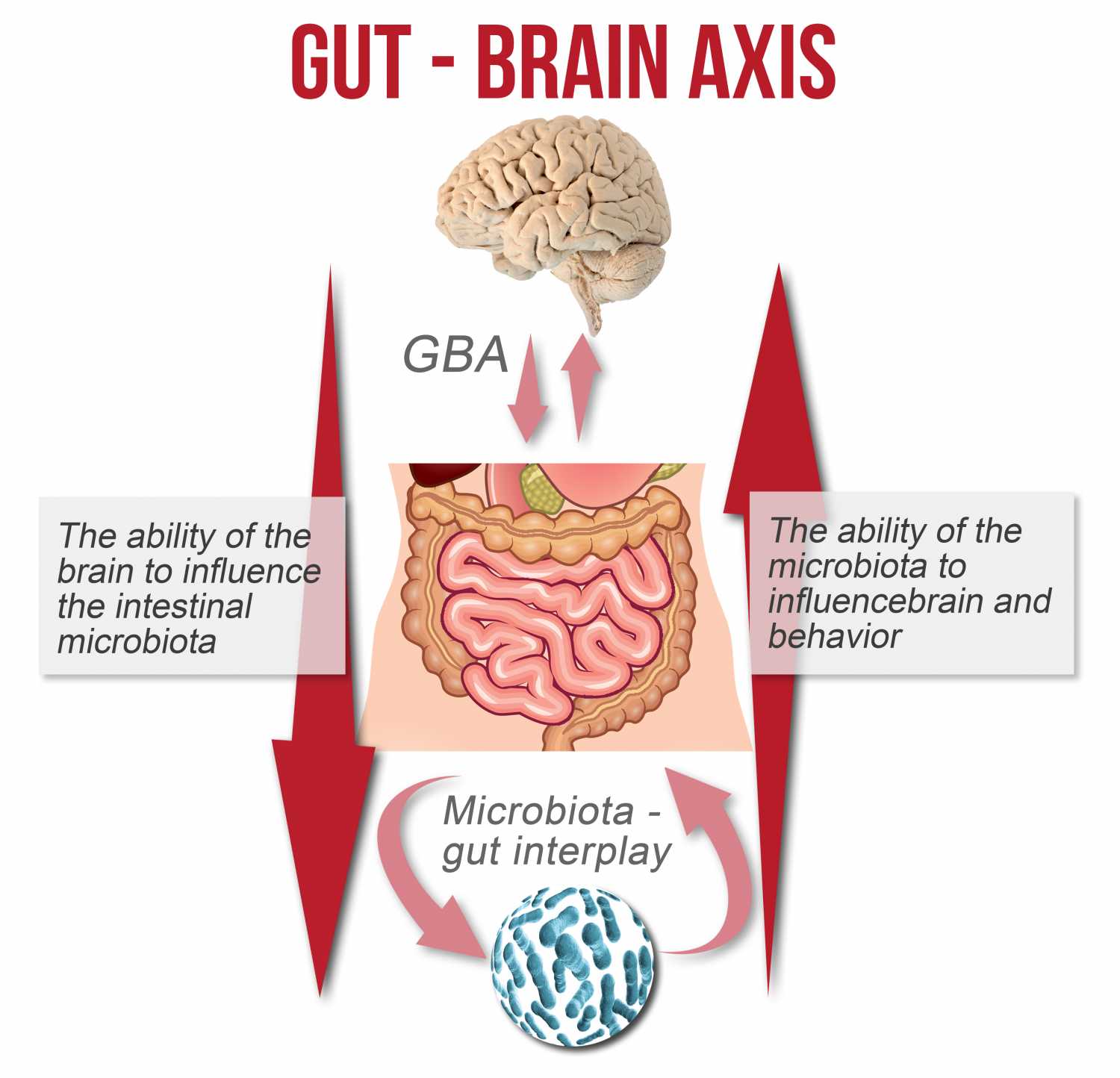Nutrition
It is well established that brain regulates gut activity. Recently, more attention has been put on the influence of gut microbes on the brain. The so-called microbiota-gut-brain axis has then been identified as a bidirectional communication network, enabling regulation of the gastrointestinal tract by the brain and influence on brain function, especially areas devoted to stress regulation, by the messages from the gut.

A good way to regulate the stress-related responses might be to promote a healthy and diverse gut microbiota. However, the foods eaten during times of stress typically favor those of high fat and/or sugar content, leading to disturbances in the gut microbes and digestion. Focusing on a high-quality diet may therefore help to regulate to microbiota and reduce the stress effects.
Recent studies have demonstrated that a healthy diet, rich in polyphenols (molecules abundant in plants), polyunsaturated fatty acids (Omega-3, Omega-6) and vitamins has a positive effect on stress reactivity. Moreover, increased consumption of fresh fruits and vegetables is associated with increased reported happiness and higher levels of mental health and well-being. In conclusion, despite the fact that there are still few meta-analyses on the effects of diets on stress response, chosing a healthy diet will be beneficial on several levels.